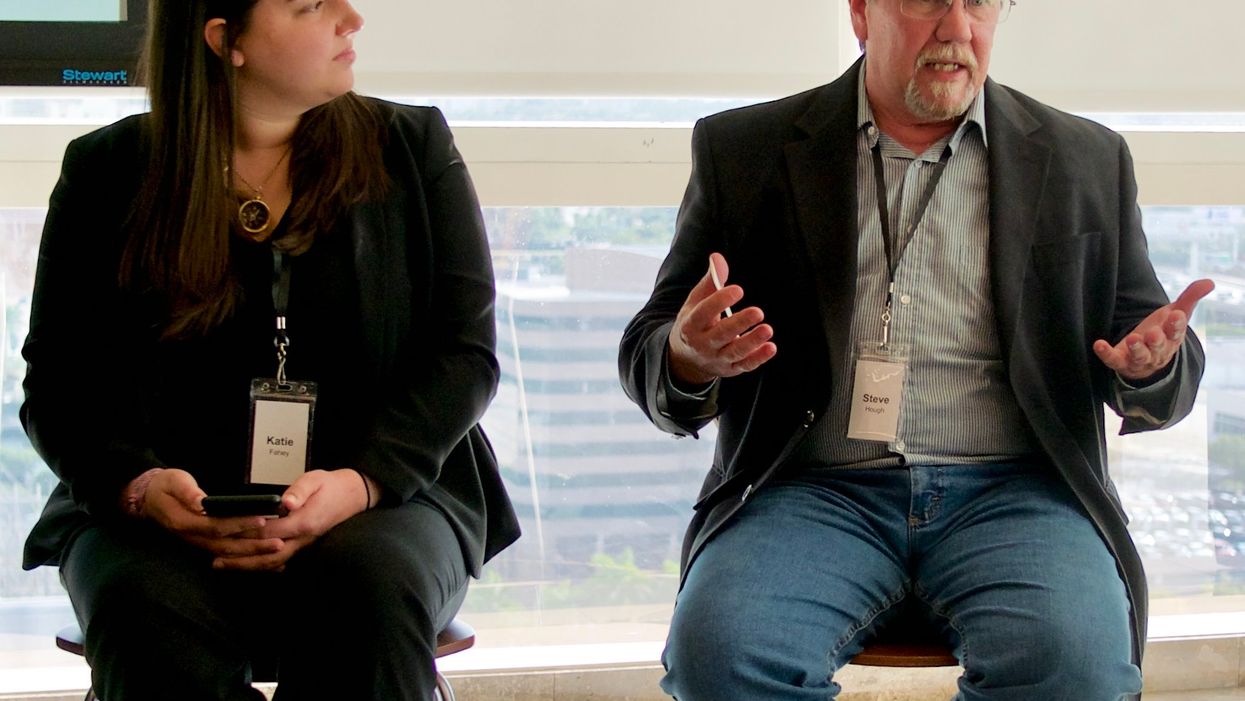Having organized the 2018 grassroots movement ending Michigan's politicized gerrymandering, Fahey is now executive director of The People, which is forming statewide networks to promote government accountability. She interviews a colleague in the world of democracy reform each month for our Opinion section.
Steve Hough is a retired accountant and an independent voter who had never been active in politics until eight years ago, when he became a volunteer with Independent Voting. In 2017, he became the director of Florida Fair and Open Primaries.
I recently participated on a panel with him at a national gathering sponsored by Open Primaries and All Voters Vote to understand what primary reform would mean for Floridians. Our recent conversation has been edited for clarity and brevity.
Fahey: Can you share a bit about your group's mission?
Hough: Florida is one of about 12 states that still have completely closed primaries, meaning you must be affiliated with a major party to participate. Currently the state has almost 3.7 million NPA's — "No Party Affiliation" voters, also known as independents. That is 27 percent of the electorate plus a smaller number of voters who are members of minor parties. We're advocating for opening up primaries so that all those voters can participate.
Fahey: How did you get involved initially?
Hough: I've never been a member of a party but always voted in the general election. I had an interest in politics, so after I retired I wanted to get more involved. Our local newspaper had a comment section where you could go online and put in your two cents on any article. That was my first effort to participate, and it was shocking how rancorous the rhetoric was. That wasn't for me, so I went online and started looking for other independents and found Independent Voting.
Fahey: Can you describe the history of the fight for open primaries in Florida and where we are now?
Hough: Going back to 1998 Florida voters have recognized that closed primaries are a problem. Since so many races are decided in the primaries, you end up with many candidates running unopposed in the general election. Voters passed an amendment to allow every voter to vote in a primary where the winner would be the only candidate in the general election. Unfortunately, partisans found a way to get around this, called the write-in loophole. The partisans enlist a bogus write-in candidate, to create the appearance of opposition in the general, and therefore keep the primary closed.
There was an effort in 2015 to bring an initiative to the ballot for open primaries, but it did not succeed.
When I took over FFOP in 2017, we had an opportunity to expand awareness about the closed primary through the Constitution Revision Commission. I worked with John Opdycke at Open Primaries to get our message out. When the commission ultimately decided not to pursue open primaries, my grassroots team went out and gathered thousands of signatures on a petition for a constitutional amendment for top two. We stopped when a well-funded campaign effort, All Voters Vote, began its own effort. After collecting over 1.2 million signatures, a measure will be on the November ballot that would open the primaries this way: All candidates for the Legislature, governor and other top state offices would appear on the same ballot, regardless of party affiliation, and every registered voter could take part. The top two vote getters would advance to the November general election.
Fahey: As a volunteer organization, what motivates your team to invest time to create a more democratic election structure?
Hough: Their motivation, I think, is the same as mine. We feel our primary process is broken by disenfranchising so many people, and it is imperative those 3.7 million Floridians be included.
Fahey: What has been the most unexpected challenge you have faced?
Hough: That's a tossup between the pushback I get from rank-and-file members of the Democratic and Republican parties and the challenge of educating voters. That education is both about the crucial importance of voting, particularly in primaries, and about everyone having the opportunity to vote in primaries. In Florida, 85 percent of races are decided in the primaries.
Fahey: And the most gratifying thing that has happened?
Hough: Grassroots organizing is a lot of work and your return on investment can seem rather low. The most gratifying thing is when you randomly come across someone who was not on your radar and they come on board. A good example is Brenda Carr, president of the Upper Keys League of Women Voters. I met her through one of my random emails. I send out a thousand daily. Brenda has been great: gathering signatures, bringing a speaker to her chapter and helping bring her state organization on board.
Fahey: How has your life changed as a result of becoming a democracy activist?
Hough: I'm a retired accountant and as you know, accountants are usually in the back office out of sight. Growing up I was a pretty shy introvert. Truth be told, I was volunteered for my role at FFOP! I was happy to do it but it's been quite an experience being in a leadership position and the public face of this issue.
Fahey: If you were speaking with a high school student, how would you describe what being an American means to you?
Hough: When I was their age the Vietnam War was going on. In one more year I would have been eligible for the draft, except the war was winding down. American citizens, the majority of them young people, took to the street protesting what was going on. That direct action was the culminating factor in the government ending that conflict. I would stress if you see something wrong with your government, get involved and speak out. If you don't know how, find others that do and join them.




















Trump & Hegseth gave Mark Kelly a huge 2028 gift